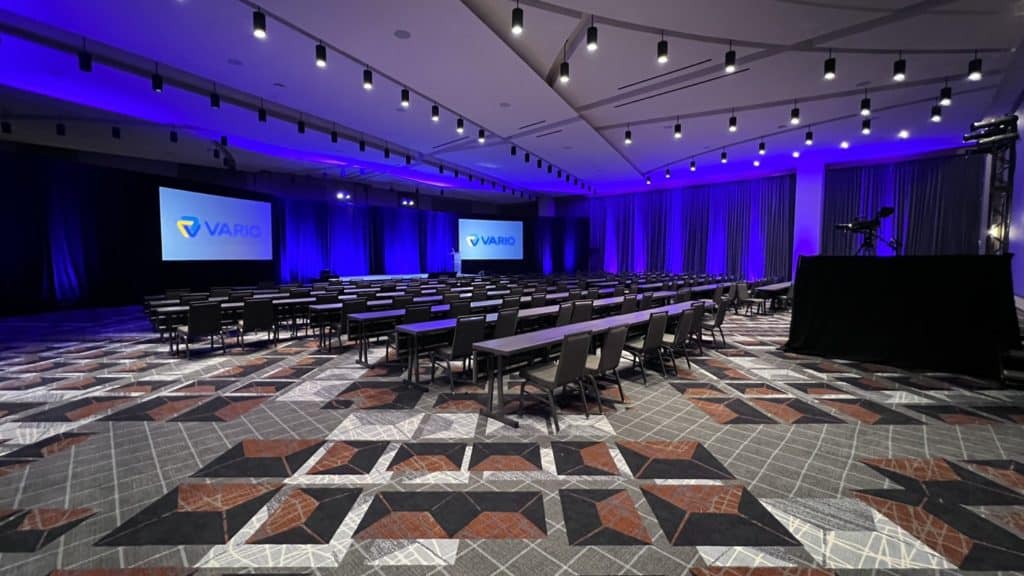A Deep Dive Into Exactly How Event Management Works to Develop Memorable Experiences
Event management is an intricate technique that integrates different components to craft extraordinary experiences. It needs a clear understanding of the event's purpose and audience. Organizers should browse budgeting, logistics, and advertising to assure a seamless execution. Each part plays an important duty in achieving the preferred impact. Nevertheless, the journey does not finish with the event itself. There are understandings to uncover that can shape future ventures.
The Principles of Event Management
Effective event management includes a series of essential concepts that direct the planning and execution of successful occasions. At its core, it involves comprehending the event's objective, audience, and desired outcomes. Identifying the target group is crucial, as it notifies choices associated with web content, advertising, and logistics.
Budgeting is one more essential element, guaranteeing that sources are designated effectively while meeting the event's objectives. This includes preparation for unexpected expenditures that might emerge.
Time management plays an important duty, as event supervisors have to create a detailed timeline to work with numerous jobs and landmarks.
Additionally, efficient communication among stakeholders, vendors, and employee is necessary to ensure positioning and prevent misconceptions.
Danger management must be taken into consideration, with backup strategies in location to deal with prospective difficulties, consequently improving the overall experience for guests and guaranteeing a seamless execution of the event.
Trick Functions in Event Preparation
In event planning, understanding vital duties is necessary for successful implementation. The event coordinator is in charge of supervising logistics and ensuring all elements straighten with the vision. Furthermore, reliable supplier management is vital for preserving top quality and fostering solid partnerships throughout the planning procedure.
Event Coordinator Duties
An event organizer coordinates the complex aspects of event preparation, guaranteeing smooth implementation from conception to verdict. They are accountable for conceiving the event theme, setting spending plans, and developing timelines to keep the job on course. Coordination with stakeholders, including clients, location supervisors, and volunteers, is necessary to line up assumptions and promote communication. The organizer additionally manages logistics, such as wedding catering, transportation, and technology needs, making sure all components operate harmoniously. They conduct website check outs, manage routines, and troubleshoot concerns that may occur throughout the event. Post-event, the planner examines the event's success, gathering responses and evaluating results to inform future tasks. This complex role needs solid business abilities, focus to information, and efficient social interaction.
Vendor Management Essentials
Steering with the landscape of supplier management is vital for successful event planning. Efficient vendor management involves identifying, choosing, and collaborating providers who offer vital solutions, such as food catering, audiovisual support, and decoration. Event planners must keep solid interaction with suppliers to guarantee that all aspects straighten with the event's vision. Trick functions include the supplier manager, who looks after agreements and settlements, and the logistics coordinator, responsible for on-site arrangement and implementation. It's necessary to develop clear expectations and timelines, cultivating a joint atmosphere that enhances the overall experience. By focusing on these components, event planners can browse prospective challenges, making certain that every detail adds to a smooth and unforgettable event.
Crafting a Vision: Principle Growth

When a vision is developed, it comes to be vital to convert it into workable parts. This consists of defining the environment, choosing ideal venues, and establishing the event's style. Collaborating with stakeholders, consisting of enrollers and partners, better fine-tunes the principle, making certain that all parties share a combined understanding of the event's purpose. Ultimately, a well-developed vision not only boosts guest involvement yet also sets the phase for remarkable experiences that reverberate long after the event concludes.
Budgeting and Source Allocation
With a clear vision in position, the next action in event management entails cautious budgeting and resource allotment. This crucial stage guarantees that all required parts are funded and straightened with the event's objectives. Event supervisors start by approximating expenses related to venue option, food catering, enjoyment, and advertising. They create a comprehensive budget that lays out each group, permitting for openness and responsibility.
Resource allocation expands past funds; it likewise includes personnels. Recognizing group roles, responsibilities, and timelines is vital to assure effectiveness. Event managers should likewise consider backups for unforeseen expenses or modifications in scope, developing a buffer within the budget plan.
Moreover, prioritizing costs on elements that boost guest experiences is critical. By purposefully allocating sources, event managers make the most of influence while maintaining economic control. This disciplined technique not only promotes effective events but additionally builds reputation and count on with stakeholders and individuals.
Logistics: The Backbone of Event Implementation
While budgeting lays the foundation for an event, logistics function as its foundation, ensuring that every aspect is performed efficiently and successfully. charlotte event companies. This encompasses a wide variety of tasks, including venue choice, transportation setups, and tools procurement. Efficient logistics management needs thorough planning and coordination to ensure that all aspects straighten with the event's timeline and purposes
Key parts of logistics consist of supply management, where supplies and materials are tracked to avoid lacks, and staffing, which read the full info here entails recruiting and training personnel to handle various tasks. Communication is also important, as it promotes cooperation amongst suppliers, enrollers, and the event group.

Marketing and Promo Approaches
Efficient advertising and promotion approaches are necessary for optimizing attendance and involvement at an occasion, as they produce passion and exhilaration among prospective participants. Event supervisors utilize a mix of typical and electronic advertising methods to reach their target market. Social media site systems, email projects, and targeted ads are frequently made use of to produce buzz and foster neighborhood interaction. Cooperations with influencers or sector leaders can boost credibility, while involving material such as videos and testimonials can reverberate with prospective these details attendees.
Additionally, leveraging event-specific hashtags and developing shareable graphics motivates natural promo amongst guests. Early bird ticket deals and exclusive promos can incentivize registration, additionally enhancing rate of interest. Moreover, a properly designed site that uses simple navigating and clear info about the event can improve the user experience. By executing these advertising and marketing and promotion approaches, event managers can ensure greater exposure and inevitably create an unforgettable experience for all individuals.

Measuring Success: Responses and Analysis
Success in event management depends upon robust responses and analysis devices. These processes are important for establishing the effectiveness of an occasion and recognizing areas for renovation. By gathering input from guests, coordinators can evaluate satisfaction levels, recognize choices, and evaluate total influence. Surveys and meetings work as valuable tools for accumulating quantitative and qualitative data, enabling comprehensive evaluation.
Furthermore, reviewing key efficiency indications (KPIs) such as attendance rates, interaction degrees, and return on financial investment (ROI) supplies a clearer image of event success. Post-event debriefing sessions with the preparation team additionally add insights, fostering a culture of constant enhancement.
Inevitably, an organized approach to feedback and assessment not only improves future occasions but also enhances have a peek at this site connections with stakeholders. By carrying out these methods, event supervisors can develop remarkable experiences that reverberate with individuals and drive ongoing interaction.
Frequently Asked Inquiries
Exactly How Do Event Managers Take Care Of Unanticipated Difficulties Throughout an Occasion?
Event managers attend to unanticipated difficulties by continuing to be tranquility, examining the circumstance, and executing backup strategies - charlotte event companies. They connect efficiently with their team, adjust rapidly, and prioritize options to assure the event continues efficiently and successfully
What Innovation Devices Are Crucial for Modern Event Management?
Necessary modern technology devices for contemporary event management include event enrollment software application, task management applications, guest engagement platforms, and analytics devices. These sources enhance procedures, enhance interaction, and boost general event experiences for coordinators and participants alike.
Just How Do Cultural Distinctions Influence Event Preparation and Implementation?
Cultural differences significantly influence event preparation and implementation. They influence styles, custom-mades, communication styles, and expectations, demanding customized techniques to ensure inclusivity and respect, ultimately forming the total experience and success of the event.
What Are the Ethical Factors To Consider in Event Management?
Ethical factors to consider in event management encompass transparency, sustainability, social level of sensitivity, and inclusivity. Organizers have to prioritize justness, regard diverse audiences, decrease ecological influence, and assurance accessibility to produce responsible and memorable experiences for all individuals.
Exactly How Can Sustainability Be Integrated Into Event Preparation?
Sustainability can be integrated right into event planning by making use of eco-friendly materials, reducing waste, sourcing regional vendors, applying carbon offset programs, and advertising electronic solutions to decrease paper usage, therefore enhancing environmental consciousness within the event's framework.